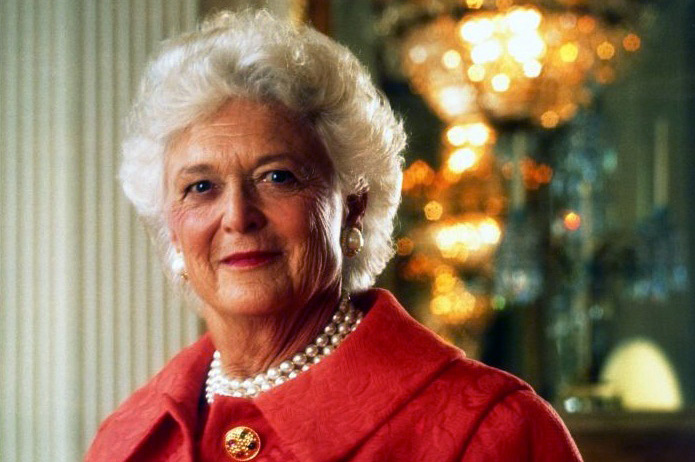Views expressed in opinion columns are the author’s own.
As the passing of a public figure usually does, the death of former First Lady Barbara Bush last week inspired commemorations across the internet. Among the scores of internet commentary were the tweets of Randa Jarrar, a tenured professor at California State University, Fresno. Jarrar’s tweets quickly incited outrage for her audacity and bluntness, with many calling for Fresno State to fire her.
Jarrar’s tweets included comments like “Barbara Bush was a generous and smart and amazing racist who, along with her husband, raised a war criminal. Fuck outta here with your nice words,” and “PSA: either you are against these pieces of shit and their genocidal ways or you’re part of the problem. that’s actually how simple this is. I’m happy the witch is dead. can’t wait for the rest of her family to fall to their demise the way 1.5 million iraqis have. byyyeeeeeeee.”
These tweets are inflammatory and in extremely poor taste. But those calling for Fresno State to fire Jarrar need to consider the ramifications of limiting professors’ freedom of speech, especially in regards to contentious political commentary. Fresno State shouldn’t listen to those outraged at Jarrar’s comments — instead, the university needs to double down on the protections academics are granted.
Firing Jarrar for tweeting her opinions about the former First Lady and the Bush family has the potential to set a precedent of stifling professors’ freedom of speech, a slippery slope no one should be calling for. The moment a university caves to public pressure to satiate one side’s discontent over the personal opinions of a single professor is the moment the same university compromises the principles of higher education it should protect at all costs. Institutions of higher education should be concerned with protecting ideas and opinions that are controversial, not firing those who voice them because some find them disagreeable.
A lot of the resistance to Jarrar’s tweets wasn’t because of the opinions she expressed, but rather the manner she went about doing so. The main complaints lodged against Jarrar are her profanity, her eager anticipation of the “demise” of an entire family and her tweeting so callously right after Barbara Bush’s death. There’s also been a lot of debate over what is considered professionally appropriate for a professor to say or do, and on what media platforms. These are all valid points to consider, and they do raise serious questions about the extent to which an institution should protect a faculty member’s freedom of speech. But, they don’t actually change anything.
Being insensitive and just plain mean doesn’t strip away one’s right to speak freely, and using inflammatory language doesn’t strip away one’s right to speak freely either. Saying such things on Twitter still doesn’t invalidate one’s right to freedom of speech. Randa Jarrar may be in the wrong for what she tweeted, but she has every right to tweet it as angrily as she sees fit, and on whichever platform she chooses.
Protecting Jarrar’s freedom of speech is key to maintaining the integrity of the university. If Fresno State chooses to fire Jarrar, what they’ll really be doing is participating in a form of censorship that institutions of higher education have always condemned. Unpopular and controversial opinions are what freedom of speech is meant to protect — and Jarrar’s controversial opinions should continue to be safeguarded.
Caitlin McCann is a sophomore communication major. She can be reached at caitlinmccann32@gmail.com.



